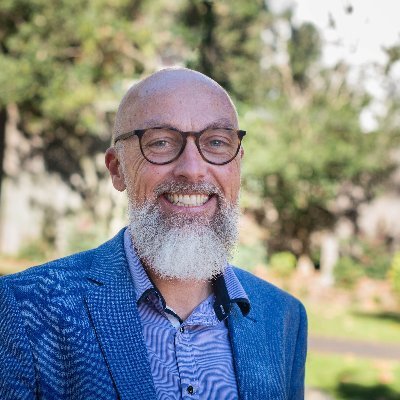The Yes, the No and the Maybe
Well what an interesting day in the news yesterday was, in no particular order. How many of the following did you pick?
The plebiscite vote to change the definition of marriage with a roughly 60/40 split.
Mugabe getting his comeuppance in Zimbabwe.
The Socceroos going through to the World Cup in normal time with more than one goal.
I picked one, and if you’re as long suffering an Australian soccer fan as I am (I still have bad dreams about Iran 2 Australia 2), and if you throw up your hands in despair at the longevity of dictators, then you’ll know I picked the first of these three.
That’s right. At the start of the process I said 60/40, and was convinced that nothing that anyone said or did would change that. And why would it? People are not going to switch deeply held convictions on the basis of a mere campaign.
The people’s opinion now silences the matter. Or it should. It tells those who were avowedly Yes over the past years that actually the common figure of some 73 per cent in favour is not the case. But at the same time it tells those who were avowedly No that they were naive to think it was going to be remotely close. It wasn’t. Despite all of the nastiness around the edges this process was remarkably civil.
And it’s a far better way to resolve it than the US approach in which a small slice of elites in the Supreme Court make a decision for the rest of the nation. That won’t settle the grumblings in the US because it hasn’t settled the grumblings in the US over abortion in which the same process occurred. I’ll take our great unwashed over the primped and preened judiciary any day.
Of course our vote raises other matters – matters that to me are far more interesting, and long reaching, than the mere fact that gay people can now be recognised as married. What it tells me most of all is that political and social consensus in our country is not what it used to be. The stats reveal that the ruling class of this country is increasingly out of touch with its constituents.
11 of the 17 seats in which No was the winner belong to the Labour Party (11 of 69 seats held). Those seats are populated by a cohort which the ALP traditionally views as its own; migrant populations with larger families, working class or poorer and English as a second language.
But that’s not simply because, as some suspect, Muslims are strongly represented in those electorates. The stats show a large cohort of Christians – many from China and the Middle East – in some of those electorates, far higher than the Muslim population. I think we can expect a socially conservative party to campaign hard in those electorates in coming years.
At the same time the Liberal Party will find itself increasingly split along social matters also. Tony Abbott’s seat voted overwhelmingly in favour of same sex marriage, yet he campaigned strongly against it. The conservatives in Australia are headed for a schism, if they’re not already there.
If any politician ever reads this, then less of the Schadenfreude from either side about local members not being representative of their seats, and more humility please. I think this was a vote for smaller government intervention generally.
One of the interesting, and slightly alarming observations I made among some Christians was the Facebook feeds asking for predictions of the result. I read several that were even convinced a No could get up, or that were more like 55/45. This doesn’t merely tell me something about the echo chambers we can tend to live in (just as others live in theirs), but it hints at a wider disconnect when it comes to public persuasion.
For several years now I have been saying that the traditional approach of Christian apologetics is extremely convincing – to the Christians. Convinced the already convinced is a useful exercise in encouragement, but has next to no traction with outsiders.
Part of the reason for that is the idea that people make their major decisions based on reason, when any second-grade advertising agency knows that is not the case. People make their major decisions based on emotion. People make their major decisions based on their ability or otherwise to see themselves in a particular narrative.
And the No campaign pretty much had no narrative – not one that was pitched at a positive emotion anyway. At this point it was hoist on its own petard. To say that there was nothing to fear if same sex marriage when through would be to provoke the question “Why oppose it then?” But to then merely pitch a vision of how good traditional marriage was would be to provoke the question “So why are you keeping it to yourselves?”
Simply put, the No campaign had to hold negative and positive sides to their position at the same time, and it simply wasn’t sophisticated enough to do this, and the public discourse in our country wasn’t sophisticated enough to hear it.
The great irony in this apparently non-binary age is that we live in an increasingly binary public square. You either love OR you hate. You are either open-minded OR close-minded. You are either on the right side of history OR you are on the wrong side of history.
Perhaps that will change. But don’t count on it. Culture sits upstream from politics. What the culture decides becomes what the politics enacts. And elite culture, whether the media or the academy, is fundamentally in the hands of progressives. If you want to know what politics will be like in the next twenty years, you don’t need a time machine. All you have to do is watch Netflix now, and then go hang out in the humanities department of any major university.
Plenty more to say, but I don’t need to say it all. Besides, it could just be that the traditional church in Australia is about to enter a golden era. Not a golden era in terms of influence among the elites and politics, but a golden era of vital energy living life as a creative minority that is both humble and confident about its future, and that builds a counter narrative to the prevailing narrative that promises so much, but as is so often the case, will fail to deliver on its promises.
First published on Stephen McAlpine’s blog https://stephenmcalpine.com




